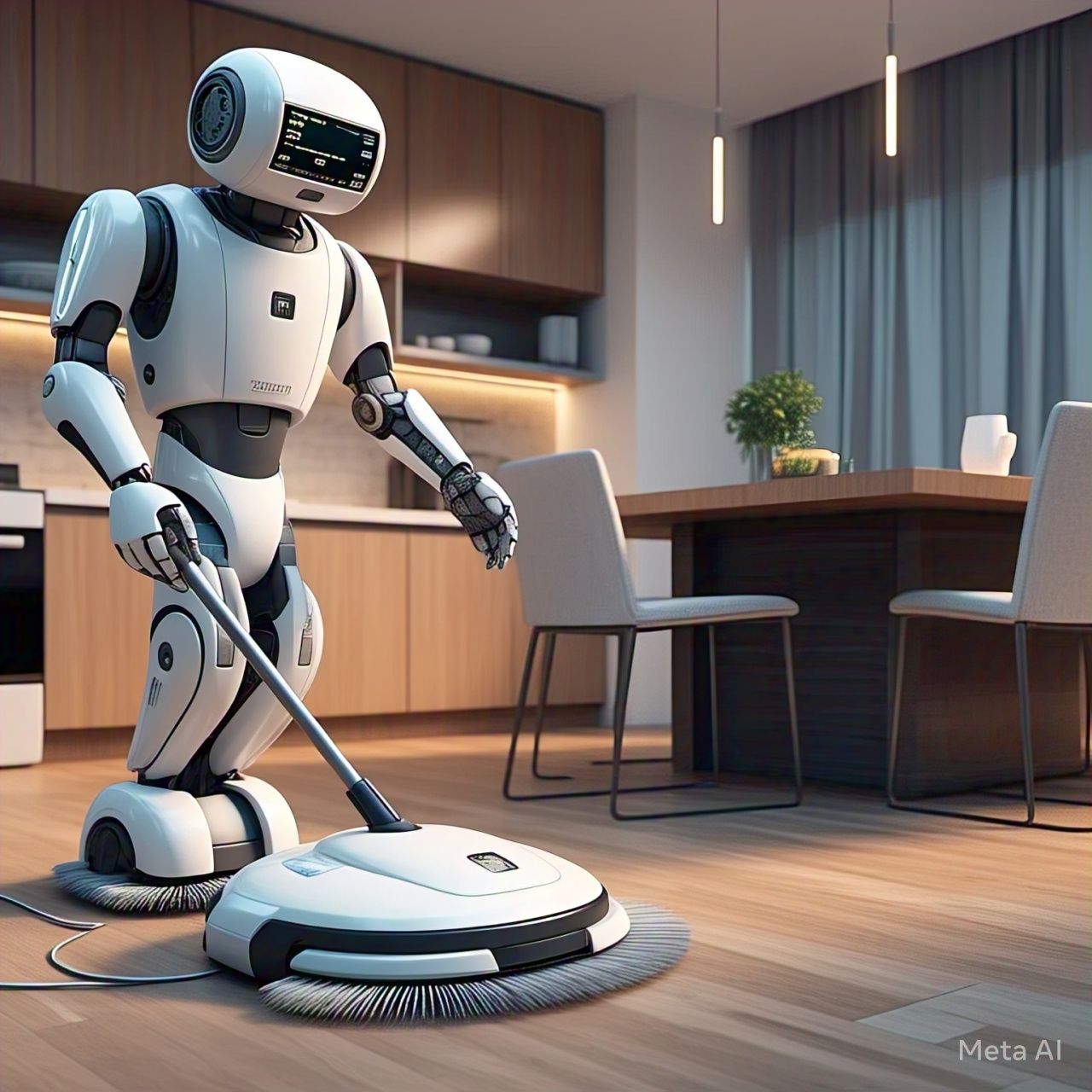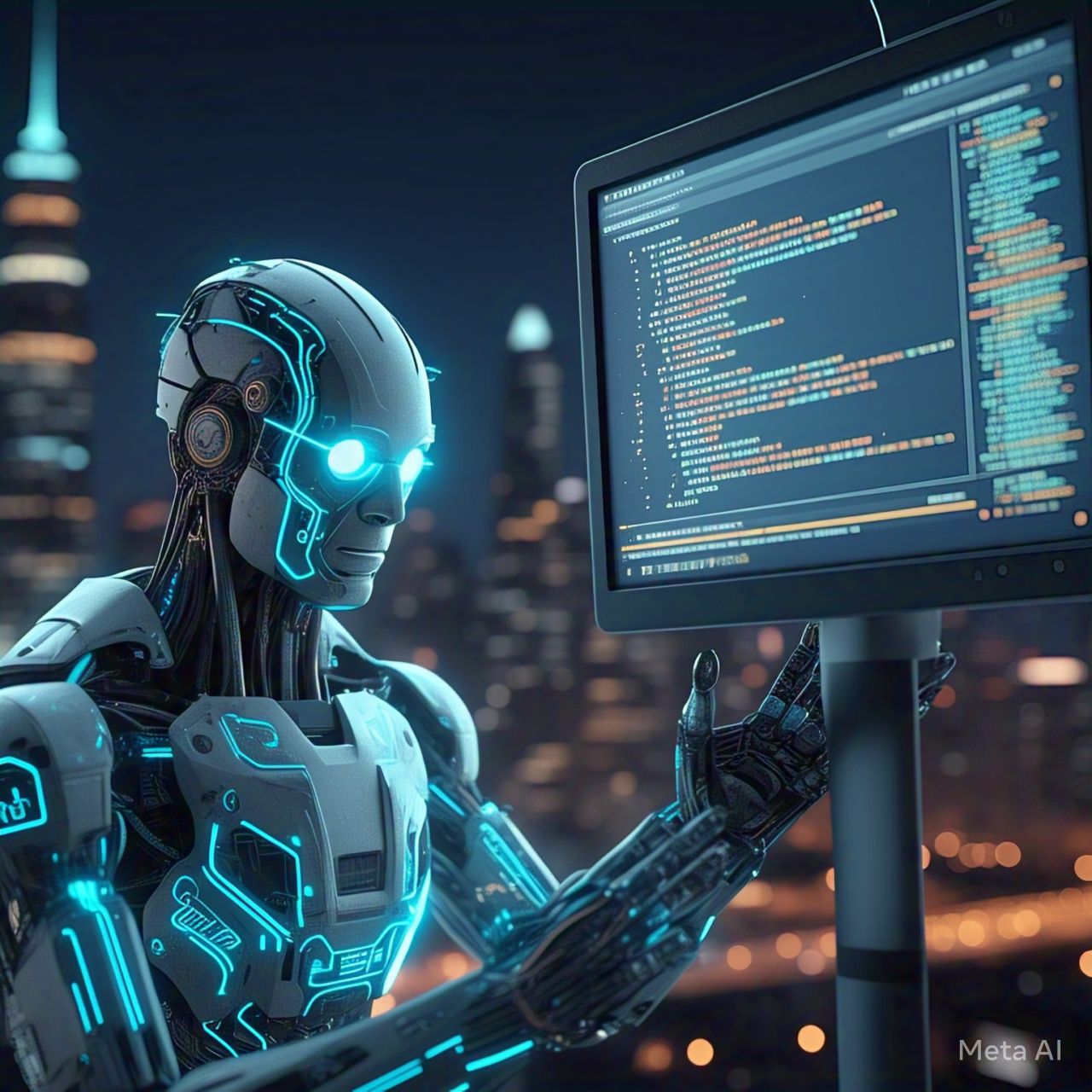Table of Contents
- Introduction
- The Evolution of Household Chores
- How AI is Revolutionizing Household Cleaning
- The Role of AI in Cleaning Robots
- Types of AI Cleaning Robots
- Robotic Vacuum Cleaners
- AI-Powered Window Cleaners
- Smart Mopping Robots
- Robotic Lawn Mowers
- Key Technologies Behind AI-Powered Cleaning Robots
- Benefits of AI in Household Chores
- Challenges and Limitations of AI Cleaning Robots
- Future of AI in Household Chores
- Conclusion
- FAQs
1. Introduction
With the rapid advancement of technology, artificial intelligence (AI) is now revolutionizing our homes, making everyday chores easier, faster, and more efficient. One of the most significant innovations in this space is the rise of intelligent cleaning robots. These smart devices use advanced sensors, machine learning, and automation to handle mundane household tasks, allowing homeowners to save time and effort.
The adoption of AI-powered cleaning robots is on the rise as consumers seek convenience and efficiency. In this article, we’ll explore the role of AI in household chores, its benefits, challenges, and what the future holds for smart cleaning technology.
2. The Evolution of Household Chores
Traditionally, household chores have been time-consuming and labor-intensive. From sweeping and mopping floors to washing dishes, maintaining a clean home requires effort and time. However, with technological advancements, AI is now stepping in to handle cleaning tasks through intelligent automation and smart robotics.
Comparison of Traditional vs. AI-Powered Cleaning Methods
| Traditional Cleaning Methods | AI-Powered Cleaning Solutions |
|---|---|
| Manual sweeping and mopping | Robotic vacuum cleaners with AI navigation |
| Cleaning requires significant human effort | Minimal human intervention is needed |
| Inconsistent cleanliness and coverage | AI ensures thorough, consistent cleaning |
| Time-consuming tasks | Saves time and effort |
| Requires manual scheduling | Smart scheduling and automation |
3. How AI is Revolutionizing Household Cleaning
AI allows cleaning robots to become more efficient by utilizing machine learning, advanced sensors, and automation. Some ways AI is transforming home cleaning include:
- Machine Learning Algorithms: AI-powered robots learn from past cleaning patterns and improve efficiency over time.
- Smart Navigation: Using LiDAR sensors and cameras, cleaning robots map home layouts to optimize cleaning paths.
- Object Recognition: AI allows cleaning robots to detect and avoid obstacles, such as furniture, pets, or stairs.
- Personalized Cleaning Schedules: Smart robots learn user preferences and automatically schedule cleaning based on routines and activity levels.
- Voice-Controlled Operations: Integration with smart assistants like Amazon Alexa and Google Assistant enables voice-activated cleaning.
4. AI-Powered Home Automation for Cleaning
AI-driven cleaning robots are becoming an essential part of smart homes. Homeowners can now control and monitor cleaning robots through mobile apps and smart home hubs. Features include:
- Auto-scheduling: Users can set cleaning routines based on their preferences.
- Zone Cleaning: AI divides rooms into zones and prioritizes cleaning high-traffic areas.
- Smart Home Integration: Robots work alongside smart thermostats, lighting, and security cameras to optimize efficiency.
- Self-Charging Mechanisms: Robots return to their charging stations when their battery runs low.
4. AI-Powered Household Cleaning Devices
1. Robotic Vacuum Cleaners
These intelligent robots use AI to detect dirt, avoid obstacles, and clean floors effectively. Popular models include iRobot Roomba, Ecovacs Deebot, and Neato Botvac.
2. AI-Powered Window Cleaning Robots
Window-cleaning robots like HOBOT and Ecovacs Winbot use AI to navigate glass surfaces, detecting edges and adjusting suction accordingly.
3. Smart Mopping Robots
AI-driven mopping robots like the iRobot Braava Jet analyze the type of flooring and apply the appropriate amount of water and cleaning solution.
4. AI-Powered Lawn Mowers
Robotic lawn mowers like Husqvarna Automower and Worx Landroid map your yard and trim the grass without human intervention.
5. Challenges and Ethical Considerations
Despite their advantages, AI cleaning robots face challenges:
- Data Privacy Concerns: Smart devices often have cameras and sensors that collect user data.
- High Initial Costs: AI-powered cleaning devices can be expensive, limiting accessibility.
- Technical Limitations: Robots may struggle with complex layouts, dark environments, or certain obstacles.
- Maintenance Needs: Smart devices require software updates and occasional repairs.
6. Future Trends in AI-Powered Smart Homes
The future of AI in home security is promising, with innovations such as:
- AI-Enhanced Robotic Assistance: More sophisticated home-cleaning robots with enhanced AI capabilities.
- Integration with IoT: Security devices communicating seamlessly with smart home appliances.
- Predictive Maintenance: AI will anticipate system failures and schedule maintenance automatically.
- Emotionally Aware AI: Future smart homes may recognize residents’ emotions and adjust environments accordingly.
7. Conclusion
AI-driven home security is no longer a concept of the future – it’s already transforming how we protect our homes and loved ones. With smart locks, AI-powered surveillance, automated alarm systems, and cybersecurity, AI is making home security smarter and more effective than ever before. While challenges such as data privacy and cybersecurity risks remain, advancements in AI will continue to enhance safety, convenience, and personalization in our homes. The future holds promising advancements, making homes not only smarter but safer as well.
FAQs
Q1: Are AI-powered security cameras more effective than traditional CCTV cameras?
Yes, AI-powered cameras can recognize faces, differentiate between normal and suspicious activity, and alert homeowners in real time.
Q2: Can smart home security systems be hacked?
Yes, like any internet-connected device, smart home security systems are susceptible to cyber threats. However, using strong passwords, two-factor authentication, and encryption can help mitigate risks.
Q3: Are AI-driven security systems worth the investment?
Yes, AI security systems provide proactive monitoring, instant alerts, and automated responses that offer superior protection compared to traditional security systems.
Q4: Can AI security systems work with existing home security setups?
Many AI-powered security solutions integrate with existing cameras, alarms, and locks, enhancing traditional security setups without requiring a complete overhaul.
Q5: What role does facial recognition play in AI-driven home security?
Facial recognition helps identify known individuals, notify homeowners about strangers, and enhance access control with biometric authentication.
Q6: Can AI home security protect against cyber threats?
Yes, AI can detect and prevent cybersecurity threats, such as hacking attempts, suspicious network activity, and unauthorized access to smart home devices.
Q7: What are some AI-driven features that enhance home security?
Some AI-driven features include real-time surveillance, smart locks, motion detection, automated alerts, and AI-powered alarm systems.
Q8: How does AI help in monitoring home security remotely?
AI enables homeowners to monitor their properties in real-time via smartphone apps, sending instant alerts in case of unusual activities.
Q9: Is AI in home security expensive?
Costs can vary, but many AI-driven security solutions are becoming more affordable. Over time, they can also help homeowners save money by preventing theft and damages.
Q10: Will AI replace traditional security guards?
AI enhances security measures but does not fully replace human intervention. Many modern security systems integrate AI with human monitoring services for maximum efficiency.
Conclusion
AI-driven home security is transforming modern households into safer and more intelligent living spaces. From AI-powered surveillance, smart locks, automated alarms, and cybersecurity solutions, the future of home security is promising. By adopting AI-based security solutions, homeowners can enjoy enhanced safety, convenience, and peace of mind.




